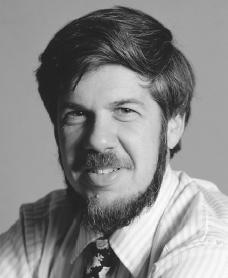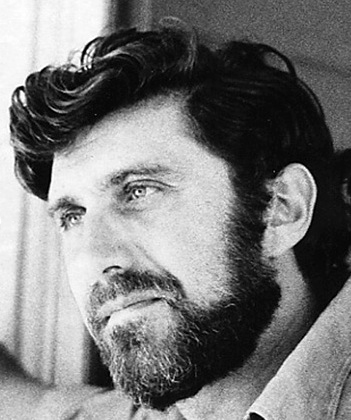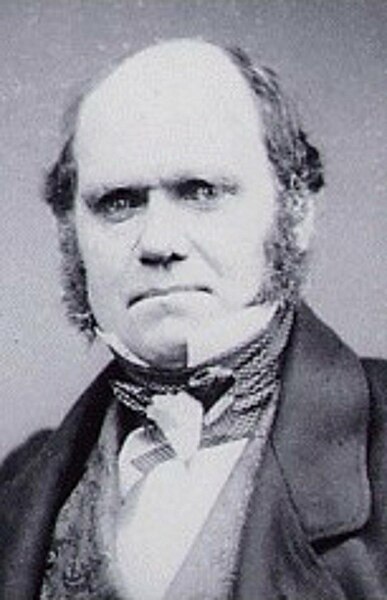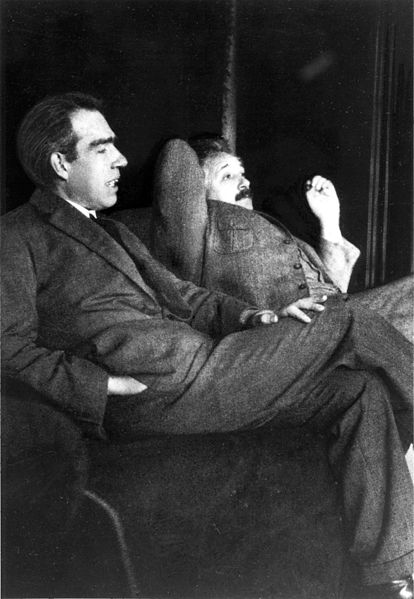
Stephen Jay Gould (credit: wikipedia.org)
There
are many who call themselves “atheists” who find my claim to believing in both
Science and God absurd. The two are incommensurable, they say.
American
writer Stephen Jay Gould who wrote on the problem of reconciling the two
domains, facts and values, called them “non-overlapping magisteria”. Two
entirely separate “domains of teaching authority”. NOMA. The name has stuck.
His
position has been widely accepted as the best that human thinkers can make of
the puzzle. We are driven by arguments from one domain in some situations, and
arguments based in the other domain at other times. We need to keep learning how
the universe works, which is what Science tells us, but then we also need
guidelines which tell us whether we should
use the powers that Science gives us and for what purposes.
Somali boy being vaccinated for polio
(credit: Andrew W. McGalliard, via Wikimedia Commons)
For
example, why do the vast majority of parents in the world today get their
children vaccinated against diseases such as measles, polio, diphtheria, etc.?
The parents make this decision because long experience has shown that vaccines
work.
Children who get vaccinated generally go on in greater numbers to more fulfilling
lives than do unvaccinated children. This is a science-based decision. Parents
who get their kids vaccinated don’t know that those kids will go on to more
complete lives. But they do know they are improving the odds for their kids by
getting them vaccinated. Similarly, to get my car repaired or my computer
cleaned of malware, I don’t seek out a fortune-teller. I go to an expert in the field.
On
the other hand, many of us are making decisions every day about the “rightness”
of actions we could take, like whether or not we should give money to homeless
people or pay more taxes to build housing for them.
Whatever
their stories, even in housing built by the taxes of their fellow citizens,
many of these people will die in a few years. They have higher rates of cancer,
heart-disease, diabetes, etc. than average citizens do. They also use drugs and
alcohol more excessively. Why don’t we just let them die and, as Scrooge says
in A Christmas Carol, get rid of the
excess population and save some money?
But
our moral reasoning tells us this policy is cruel and inhuman. If we can give
them a few more years in relative comfort, then we should do so. All the
world’s major religions exhort us to practice compassion for our fellow human
beings.
The principles underlying compassion are moral, not scientific. Science
can show us more things we could do every year, but it can’t tell us whether we
should do them. Or at least not yet.
The
problems arise when we are in situations in which we can’t decide whether to
consult the moral domain or the scientific one.
We often get very confused and anxious in these exact situations.

Alfred Nobel (credit: Wikimedia Commons)
Should
Alfred Nobel have given his newly-discovered technology to the world? Late in his
life, he was deeply upset at the thought that he might be remembered as the merchant of death. His invention,
dynamite, was being used by hundreds of factories to make mines, shells, etc.
that were far more destructive than any that had existed prior to his time. But
his invention was already out there in the public domain, being used by arms
manufacturers all over the world. All he could do, in the end, was leave most
of his fortune to fund the Nobel Prizes. A small attempt to mitigate the
destruction that his invention was causing. Should he have thought the matter
through more carefully? Should he have kept the formula for dynamite to
himself?
Heroin
was invented in Germany in the 1870’s and it was soon being marketed to doctors
to prescribe to their patients as a safe, non-addictive substitute for morphine.
It, morphine, and cocaine were sold legally in the U.S. until 1920. It took
that long for the U.S. Congress to realize that heroin was not a safe drug. By
then, there were an estimated 200,000 heroin addicts in the U.S. Families of
addicts today can’t be blamed if they wonder whether much real research had
been done when heroin was first approved. By the time heroin had been on the
market a year to two, conscientious research would have shown it was anything
but a safe drug. Surely. But profits beckoned for the drug companies even then.
Were they greedy? Negligent? Such judgements are moral ones, not scientific
ones. Still today, drug representatives whose jobs depend on selling lots of
drugs find rationalizations that exonerate drug companies and criticize anyone
who would find the companies culpable for anything. “Let buyers beware!” they
say.
Do
investment counselors, as they call themselves these days, coax, cajole, and
badger clients into buying stocks, derivatives, or other “instruments”
(whatever that means) that are far riskier than the client has ever been told?
It seems that the answer must be “yes”. Financial crashes have been happening
since stock markets were first formed. Is the real fault in the clients who are
greedy enough to keep wanting something for nothing? Or in the brokers whom
investors are supposed to respect and trust?
When
all is running smoothly, and all clients and brokers are making money, every
person working for the system claims to be responsible for guiding his clients
to building small fortunes on which they may retire in comfort. When a crash
comes, no one is responsible for anything. No one could have foreseen what
happened on the markets. Or so the brokers and CEO’s claim. There is a
hypocrisy in this picture that stuns the mind. And yet they cry out to
authorities for more legal latitude, greater degrees of risk allowed, as they sell
and buy. When people’s pension funds, savings, and lives are ruined, is this due
to fate – like an earthquake – or is someone culpable? Again, the answer to
this question requires a moral judgement, not a scientific one.
Moral
judgements are being made by most adults even in ordinary matters every day. Do
I have a right to a gourmet coffee when my kids are all going to need new shoes
in three months or less? Should I let the driver on my right slip into the
traffic in front of me? She seems anxious to. Should I hire this man who has a
record of petty theft? Should I call that customer back and tell her she forgot
her change? We depend on moral values to guide us in such decisions. They are
not scientific.
When
I put these judgements to my atheist friends, most have little trouble in saying
that parents should get their kids vaccinated, and financiers and brokers
should have to pay out of their own fortunes to at least partly compensate
investors that the financial advisors have “advised” into financial disasters.
Nobel’s case is harder, but we’ll leave it as a problem for readers to ponder.
My
point today is that when atheists are questioned closely on why they make the moral
judgements that they do, their answers are very vague and evasive.
“Empathy is my guide” is no answer at all. We don’t give in to everyone who
looks like she/he needs our “empathy”. We don’t let our children have all the
foods they want even when they look like they’re really suffering from a lack
of candy. We don’t give convicts their freedom simply because they hate being
locked up. We don’t even let ourselves off the hook when we start to feel tired
during a run or a gym workout. Empathy, by itself, is no guide to anything.
A
complete analysis of all the reasoning for all the moral systems that have ever
been presented to the world is much beyond one blogpost. Whole libraries have
been written on the subject.
But
I can confront my atheist, and often postmodernist, friends on the matter much
more quickly than that.
If
you are sure it’s wrong to ignore the homeless, if you think the rest of us should
be doing more to ease their lives – even if some of those lives will end before
they are thirty – then you should be able to say why you think so.
On
the other hand, while we’re waiting, the people who become very evasive at this
point, who can’t really give an answer for why they believe some actions are just
“right”, perhaps deserve some further explanation from me.
I
believe in compassion, honesty, and accountability. Why I believe as I do again
takes more explanation than could ever be put into one post. But it’s in my
book (posts from April 8 to September 13 of last year) for those who are
interested. It’s a matter of doing real things to improve the odds of a vigorous,
healthy future for our descendants. That is why we try to be “good”. And we have
the values and morés we do mostly because our cultures have programmed them into
us. Thus, cultural codes must be updated. They fall out of touch with the facts
of reality every couple of generations. What we must do in this century is
learn to update our cultures without war.
But
these claims are not the point of today’s post. I have made these claims about
cultural codes and probabilities, and defended them, many times.
My
point in today’s post lies in an analysis of my atheist friends’ answer to this
simple question: why do you believe in being empathetic and responsible?
I
think this policy of being honest, compassionate, and so on reveals something embedded
very deep in the thinking of my atheist friends, something they may not care
for my revealing. But here it is.
Atheists,
if you try to live by a set of moral principles similar to the ones I have just
described, what this reveals about you is that (much as you hate the word) you have
a kind of faith. A belief in things not seen.
You
believe that when most citizens do their best to live basically decent lives,
this will lead to better results for all the citizens of your community in
years to come.
But you have not visited those years to come. And you can’t. Not
even in your dreams.
Nevertheless,
you gamble on the better effects that you think will come from you and your
neighbors practicing empathy, responsibility, and honesty.
This
faith in being good and in the healthful effects that your policy will produce –
by simple, unemotional logic – must be somewhere in you. Otherwise, your policy
and your principles would be irrational. Your actions would be no more than the
twitchings of a dying animal. What sort of rational creature would strive to
live up to these standards you are setting for yourself if she/he believed that
the principles, and the behaviors they fostered, would never make any real difference
whatsoever. That belief is the main ingredient in the mental state called “despair”.
And
many people today are suffering from depression. But many more are not. They
keep trying to be decent and hoping for the best. In short, somewhere deep inside
their thinking, they have a kind of faith. The universe works in a way that
generally gives slightly better odds to the good. All may yet be well. What is
at the core of such a belief in the general decency and sense of the universe itself?
If that is not a kind of “theism”, then what term would you prefer?
And
by the way, I believe passionately that, yes, all may yet be well. We just have
to keep working hard and being decent …and one more thing.
We
now must learn how values work, how they make us behave in some ways and
refrain from behaving in others, and how whole codes of values, which are the
key parts in what are usually called our “cultures” – how these codes evolve. Then
we may get control – all or nearly all of us – by consensus, by democratic
means – of our own cultural evolution.
And
end war. Maybe, even go on to glory.

International Space Station (credit: NASA, via Wikimedia Commons)
Hard,
but not impossible. In this twenty-first century, getting easier by the day.
To
start, first, we must have a kind of faith. Life is not meaningless trivia. We
are a team. All seven billion of us. And we are meant for the stars.
In
the shadow of the mushroom cloud, nevertheless, have a hopeful day.






